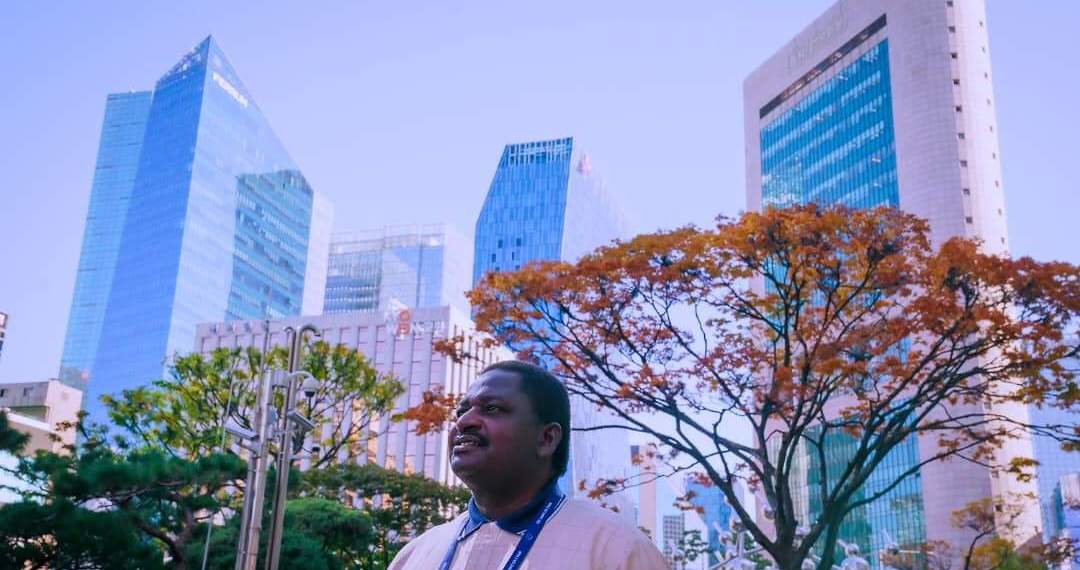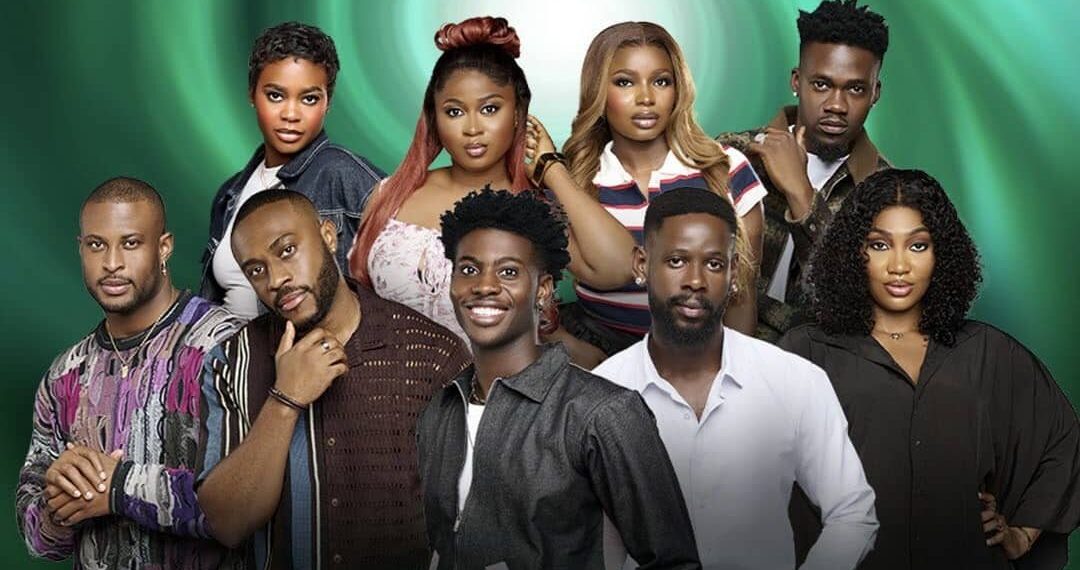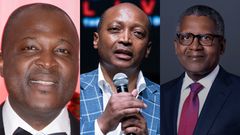When you begin your journey before the sun rises—bags packed, spirits restless—it’s a reminder that some trips go far beyond the horizon of routine travel. Recently, I joined a Nigerian delegation on a notable mission: a 15-hour flight to Seoul, South Korea, representing our nation at a global health summit that could impact millions back home and across Africa.
Our route took us through Muscat, Oman. The brief stopover in this Middle Eastern nation—officially the Sultanate of Oman—was a technical necessity, giving us a chance to stretch, refuel, and reflect. For some in our group, Oman stirred old memories from prior government assignments in Asia. The airport, now revamped with modern amenities and fresh aesthetics, contrasted with past experiences and underscored how swiftly some nations can reinvent their image and infrastructure.
Once airborne again, the journey to Seoul truly began. Facing nearly nine more hours in the skies, anticipation mingled with exhaustion. Yet as the capital city emerged beneath us, the mood shifted. Seoul’s chilly embrace—a stark drop from the Nigerian heat—was an immediate reminder that we were far from home, and the days ahead would demand adaptability.
Prepared for the cold, we donned our thickest layers upon arrival. Transported swiftly to the plush Lotte Executive Tower, our base for the summit, we glimpsed the seamless efficiency and advanced infrastructure that has helped transform Seoul into a global hub. It would become our home for the critical days ahead, devoted to dialogue and innovation in public health.
The focus of our visit was clear: Nigeria’s participation in the inaugural World Bio Summit, themed “The Future of Vaccines and Bio-Health.” President Muhammadu Buhari’s commitment to vaccine production—and, more broadly, to issues such as security, climate change, energy sufficiency, and anti-corruption—set the tone. In his keynote, President Buhari recounted Nigeria’s experiences during the COVID-19 pandemic, pointing out the inequalities that left many African and Asian countries scrambling for access to life-saving vaccines and medical equipment. He emphasized, “It must be said that inequity in distribution of virtually all requirements for diagnostics and therapy was a key factor in the lack of capacity to produce basic or essential commodities, and the total dependence on imported goods.”
The president’s frank remarks echoed the lived realities of many Nigerians, as well as citizens across West Africa, during COVID-19—when access to vaccines was dictated by geography and economic standing. President Buhari called for urgent, global discussions to ensure such disparities do not replay in future crises. “Such a serious public health failure should not be allowed to happen again and lessons must be learned from it,” he insisted. Nigeria’s selection as one of six African countries to receive the technology for producing mRNA vaccines, through a World Health Organization-led initiative, presents an opportunity to shift from dependency to resilience. While acknowledging WHO’s support, the president urged for swift rollout of the project, underscoring the need for both infrastructure and investment to turn the promise into sustainable results.
READ ALSO:
Nigeria’s ambitions go beyond crisis response. President Buhari outlined plans for Nigeria to become a “global hub for sustainable manufacturing and distribution of Vaccine and Biological pharmaceuticals,” committed to exploring partnerships for cutting-edge technology. According to a Lagos-based public health expert, “This shift towards local vaccine manufacturing could be a game-changer not just for Nigeria, but the entire ECOWAS region. However, it requires clear government policy, reliable funding, and genuinely transparent partnerships with private industry.”
On the ground in Seoul, the contrasts between the host city and many African cities were impossible to ignore. Clean, orderly streets, well-organized public transport, and high-rise buildings define the Korean capital. For many Nigerians, it’s a reminder of a time when both nations stood on comparable economic footing in the early 1960s, before South Korea’s rapid rise. Today, Seoul epitomizes what committed investment in infrastructure, education, and governance can achieve—a subject that comes up often in Nigerian economic debates, especially among business leaders and policy analysts eager for accelerated development.
Historically, Seoul has hosted major global gatherings before—from the 1988 Olympic Games to the co-hosting of the 2002 FIFA World Cup with Japan. Sporting events like these have left lasting memories for Africans, even as results on the pitch have not always favored our teams. According to Nigerian sports historian Musa Emeka, “Our appearances on the world stage have always been about more than just scores; they remind us of the capacity for international collaboration and national pride.” These events reflect the city’s role as a cultural and organizational heavyweight—an aspiration for many African urban centers.
Beyond politics and infrastructure, Seoul also offers deeper cultural and spiritual richness. While a significant portion of South Koreans are Buddhists, the city is also home to one of the world’s largest Pentecostal congregations, Yoido Full Gospel Church, founded by the late David Yonggi Cho. At its peak in 2007, the church counted 830,000 members, a testament to faith’s power in shaping a city’s soul. For West African visitors—where spirituality is woven into daily life—this blend of discipline, faith, and order in Seoul resonates powerfully.
Personal ties often underpin international relations. I was reminded of this during my trip, recalling a long-standing friendship with Eun, a former South Korean embassy staff member in Abuja. Our shared memories reflect the warm, people-to-people connections that often bridge continents in ways that politics and policy cannot. Little moments—like a memorable gift of tea with a playful warning from an ambassador—become lasting stories that humanize diplomacy for everyday people.
At its core, Seoul’s “soul” is a reflection of what happens when a city, and by extension a country, invests in its people, values order, and fosters unity. For Nigerian and African readers, the lessons go beyond skyscrapers or public health breakthroughs. They ask: What are the ingredients of national transformation? Is it discipline, faith, visionary leadership, or a blend of all?
As global partnerships on vaccine manufacturing and bio-health accelerate, nations like Nigeria stand at a crossroads. Can we close the gap with peer nations that once shared our struggles? Are there lessons to adapt from Seoul’s story—of resilience, deliberate planning, and bold reform?
For the millions of West Africans whose futures hinge on equitable healthcare access, responsible leadership, and international cooperation, these questions are urgent and personal. And while the summit in Seoul may be just one milestone, the strides we take next could define the destinies of entire generations.
How do you view Nigeria’s ambition to become a vaccine manufacturing hub and what key lessons should we draw from South Korea’s remarkable progress? Share your thoughts below and join the conversation!
Have a story you want to share or sell? We’d love to hear from you! Email us at story@nowahalazone.com to get your story featured or discuss story sales.
For general support, reach out at support@nowahalazone.com.
Follow us on Facebook, X (Twitter), and Instagram for more updates and to be part of our vibrant community!










